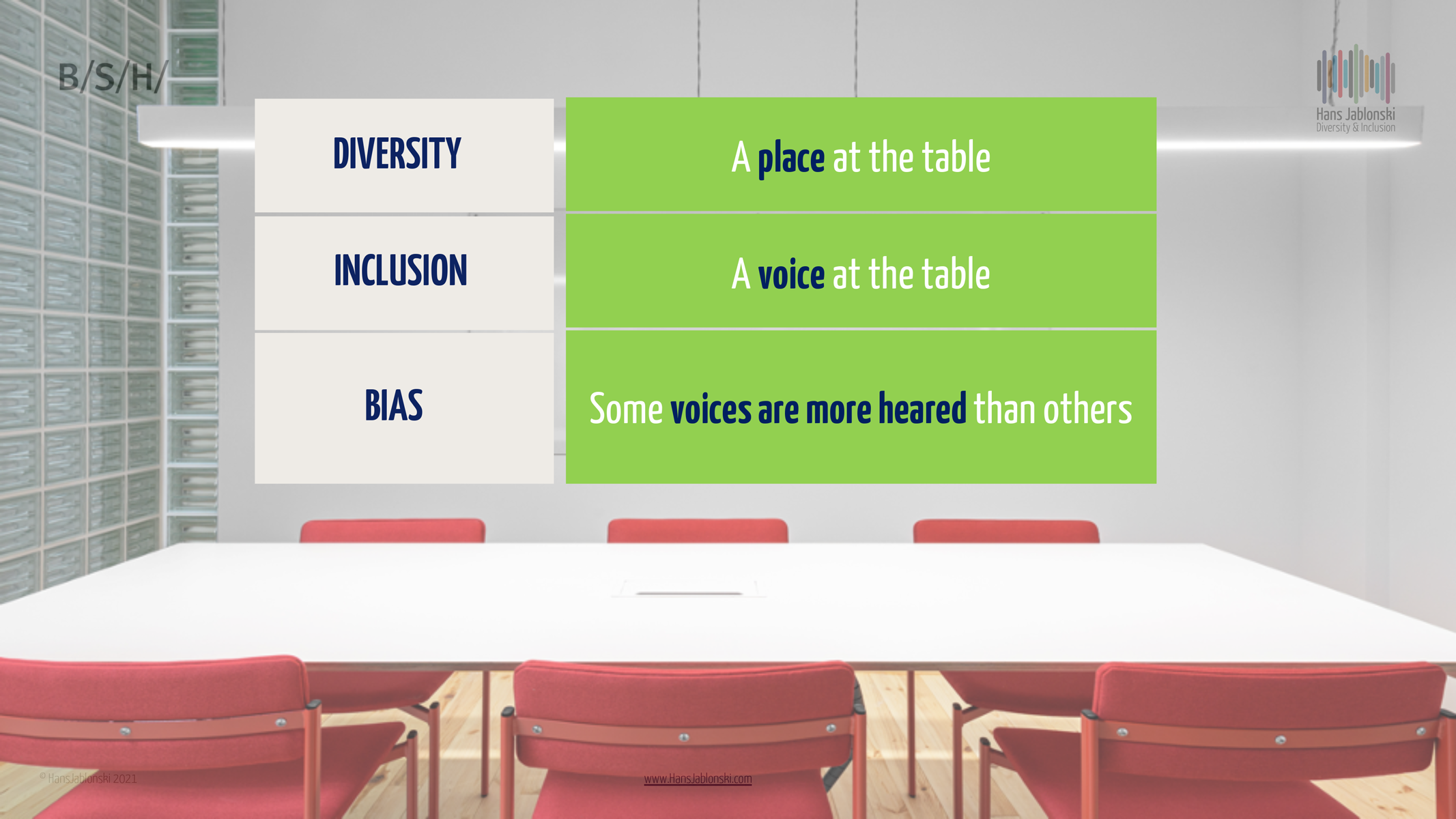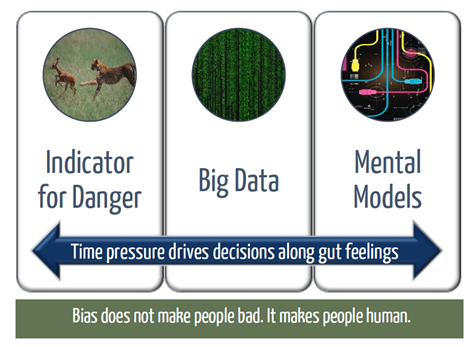Boosting transformation by minimizing unconscious bias and using the power of Diversity
Reading time for this story: 6 minutes
First impressions, clichés, and prejudices: Science speaks of unconscious bias - unconscious thought patterns - and everyone has them. They help in complex situations and everyday moments and offer orientation - also in decision-making. During BSH Diversity Week 2021, Marion Weissenbach (Corporate Human Resources), organized a talk together with diversity expert Hans Jablonski about how diversity can boost transformation. One aspect of this was the question how we can deal with unconscious thought patterns correctly to strengthen openness towards and appreciation of others.
„Diversity, Equity and Inclusion come to life when everybody is competent on being inclusive and sensitive to unconscious bias. This starts with being open for personal development. So let us question our way of thinking and foster a culture where everyone feels valued!“
- Marion Weissenbach (Corporate Human Resources)
Assessments and decisions are often influenced by subconscious. But are unconscious thought patterns always fair? No. That is why it's all the more important to discover your own stereotypes. Knowing them, questioning them and being aware of your thought patterns helps you to deal with them properly.
With this knowledge, you can master everyday situations even more successfully.
Consciously dealing with your own pigeonholes has an even higher impact: rethinking and questioning first impressions, prejudices and clichés strengthens openness towards and appreciation of others. This enables you to discover diversity, adopt new perspectives, and change your own thought patterns in the long term.
How do we define Diversity, Equity and Inclusion?
- Diversity is amongst differences and similarities between people.
- Equity is about to ensure fairness in all what organisations do.
- Inclusion describes a culture where everybody feels motivated to contribute.
Let us look at an example at the workplace and how Diversity can be put into perspective.
Diversity means that everyone has a place at the table. Inclusion guarantees that everybody has a voice at that table. But we all know that some voices are often more heard than others. That is where bias comes into play.

What is unconscious bias and why can it even be considered a necessary tool?
People are used to seeing the world from their perspective and biases are part of our everyday life manifested by unconscious thought patterns. They facilitate decision-making, but do not always lead to fair decisions.
It is important to know that not every bias is negative or hurtful. Bias also makes us human. However, not recognizing your own biases can lead to bad decisions at work, in life, and in relationships.
The model below shows that there is a correlation between bias and the time you have to make a decision. The more time you have to think and evaluate something, the easier it is to push prejudices away and make a conscious decision. When time is limited, the decision will most likely be made based on gut feelings, because your body perceives it as an indicator for danger. There is not much time to reflect in this situation, and more unconscious bias will be involved.
Does having a bias make you a bad person? No, it can even be a necessary tool.

How can unconscious bias be minimized?
There are a few important steps you can take to minimize unconscious bias:
1. Admit to yourself that you have unconscious bias.
2. Pause and rethink stereotypes: Are these always true? What are the exceptions?
3. Meet people who are different from yourself and look at the world through a different perspective.
4. Stay open to feedback and your personal development.
With this information in mind:
Let’s all keep an eye on our unconscious thought patterns and let’s bring Diversity, Equity and Inclusion to life!




